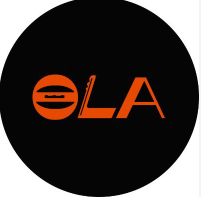
Introduction to zkPass
zkPass is a decentralized identity verification protocol that leverages advanced cryptographic technologies, including Multi-Party Computation (MPC) and Zero-Knowledge Proofs (ZKP). It offers a revolutionary approach to privacy protection by enabling secure and verifiable data sharing from Web2 and Web3 sources—without requiring OAuth or exposing personal information.
In today’s digital world, where surveillance and data misuse are real concerns, zkPass acts as a privacy shield. It serves as a protective layer for sensitive personal data—be it government-issued IDs, academic records, or financial credentials—sourced from institutions like schools, banks, and state agencies. zkPass ensures these data points are verified, encrypted, and shared in a privacy-preserving way.
Imagine each data point as a pearl, and zkPass as the shell guarding it. This powerful protocol allows users to retain ownership of their information while proving its authenticity through ZKPs—without revealing any raw data.
Technical Foundation
zkPass operates on a three-fold architecture:
-
TLS (Transport Layer Security): Secures data in transit.
-
MPC (Multi-Party Computation): Enables computation across multiple parties without revealing private inputs.
-
ZKP (Zero-Knowledge Proofs): Allows one party to prove they know a value without revealing the value itself.
This combination ensures data authenticity, privacy, and trust—all on-chain.
How zkPass Works
Users can authenticate using data from trusted Web2 sources (e.g., banks, universities) by generating zero-knowledge proofs locally. There’s no need to upload files or expose sensitive details. zkPass generates cryptographic keys to ensure data integrity, validity, and proof of origin.
Key Features
-
Privacy-Preserving: Share proofs, not data.
-
Verifiable: All credentials can be independently validated.
-
Interoperable: Compatible with both Web2 and Web3 ecosystems.
-
Anti-Phishing: Built-in protection mechanisms against spoofing and data leakage.
Risks and Challenges Despite its advantages, zkPass faces several challenges, including:
-
Computational intensity of ZKPs,
-
User experience optimization,
-
Balancing traceability with privacy,
-
Educating users and developers.
Use Cases
zkPass can be integrated into any identity-dependent scenario—whether it’s Web3 social platforms, DAO participation, DeFi onboarding, or KYC/AML compliance.
Roadmap zkPass is on track to launch its mainnet by Q3 2023, following thorough testing and community engagement. Expect further development in UI/UX, ecosystem partnerships, and developer tools.
Relevant Navigation


Kaisar Network

Keplr

MetaChain

Uplink

OLA

LayerEdge

